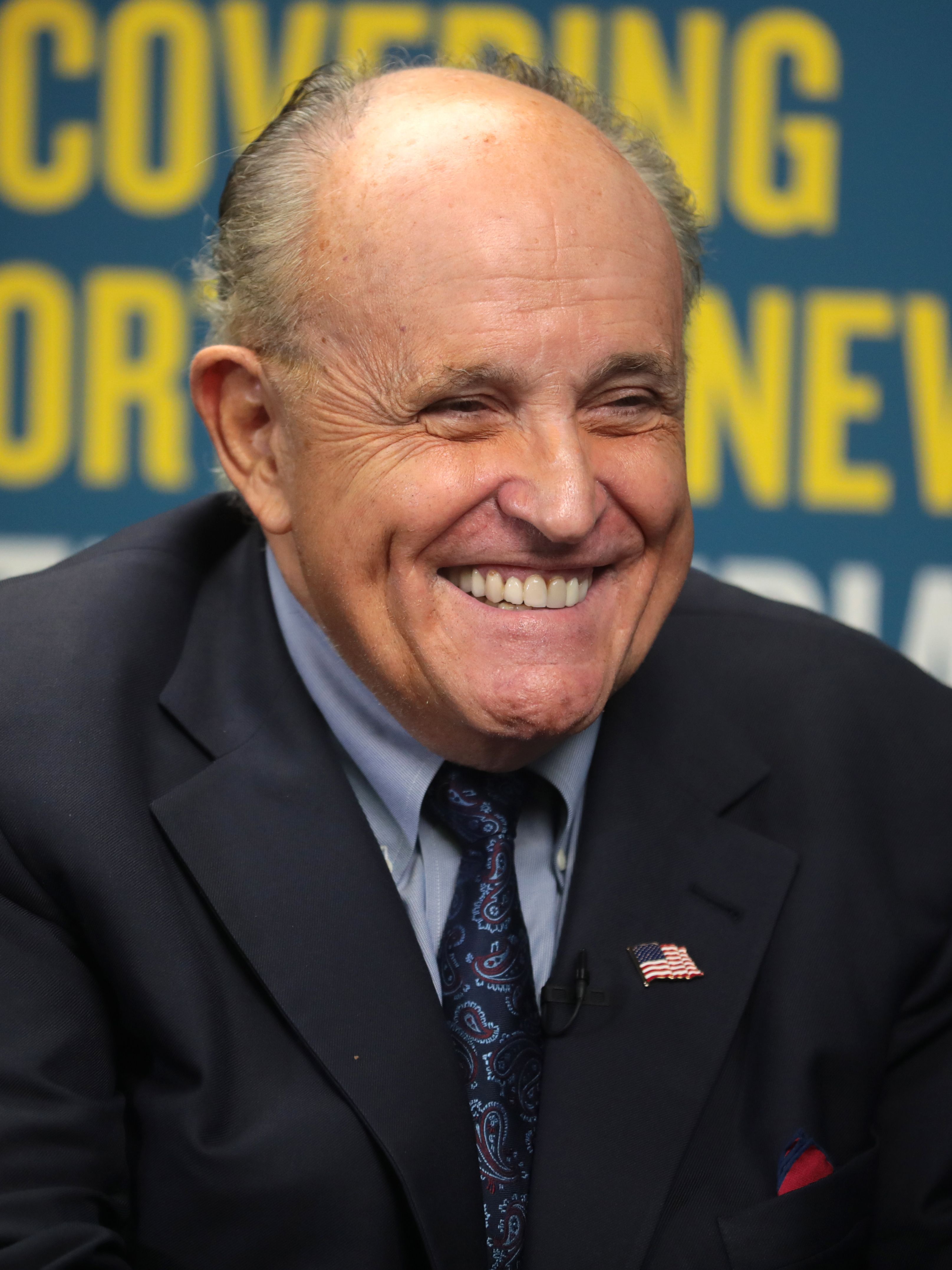By Teri Kanefield
As I’m sure you’ve heard by now, DOJ prosecutors have given Trump a letter telling him he is the target of the criminal investigation into the attempts to overturn the 2020 presidential election. (Trump’s lawyers confirmed this in court.)
Trump also said he had a deadline (which has now passed) if he wanted to talk to the grand jury. Naturally, he elected not to address the grand jury. That may have been an instance where the advice of a good lawyer and his own instincts coincide. There are rare instances when the target of an investigation should speak to a grand jury. This isn’t one of them.
Reminder: There are three categories in grand jury proceedings:
Here’s what is interesting: No other members of Trump’s inner circle received a target letter (or if they did, they’re not admitting it). Rudy Giuliani and John Eastman, when asked this week, said they had not received letters.
This is interesting for two reasons: First, if you’ve been following Merrick Garland’s explanations about how the DOJ is conducting this investigation, you know they are working from the bottom up, but if they indict Trump alone, it seems they’ve skipped a few steps. Second, prosecutors generally like to indict co-conspirators together. Indicting some co-conspirators but not others can show favoritism. It can appear that one of the co-conspirators is being targeted.
So what gives? Why is Trump the only top honcho with a target letter? Answering that question requires some speculation, and it can be hard to separate speculation from wishful thinking. With that disclaimer, I’ll give it a try: Prosecutors may have secured guilty pleas from other members of Trump’s inner circle. This means he would be indicted along with co-conspirators who have pleaded guilty and who are cooperating.
Think how much easier that would make the prosecutor’s case. Trump’s co-conspirators take the stand, and say, “Yes, I did it. So did Trump.” Then they offer documents or records, including digital records.
Documents and records are important because here is the thing about flippers: they are, by definition, insiders. When insiders flip they are inherently unreliable because they are part of the criminal enterprise. A good cross-examiner can make them look unreliable, particularly if they are cooperating as a part of a deal that benefits them. But documents and records can provide more solid evidence. Witnesses who are part of the criminal investigation can provide documentary evidence that might otherwise be beyond the reach of prosecutors. They can explain the documents and records the prosecutor has already obtained. They can corroborate other witnesses. They can say what happened during key phone calls. They can explain a pattern of phone calls.
Is Rudy Giuliani cooperating?
Recall that not long ago, Giuliani did a two-day proffer. Here is a good definition of a proffer:
In some federal criminal cases, a potential defendant may have information that may be valuable to prosecutors. In cases where the evidence against the potential defendant is airtight, such as where the client is on videotape committing the alleged crime, it may be in the client’s best interest to cooperate with prosecutors and provide them with all relevant information.
Cooperation can also make sense when a potential defendant faces significant prison time, the risks of a trial are significant, and there is a good chance they could receive significant benefits in exchange for their cooperation. The benefits could range from no criminal charges or a lesser charge. Or, prosecutors could agree to request less prison time at sentencing.
A proffer interview is the most common way to cooperate with the government in a criminal case. If the client has helpful information to offer, defense counsel will offer the client’s cooperation and negotiate a proffer agreement.
Two days is a long time. A person can answer a lot of questions in two days. It would seem that Giuliani had a lot to say.
Basically, in a proffer, the defendant tells the prosecution everything he or she knows. Given the terms of the agreement, prosecutors cannot use the person’s proffer statements against them in future proceedings, except for untrue statements, which void the agreement. Offering information doesn’t guarantee that the potential defendant will be offered a good deal, so they are risky and used only when a defendant knows he or she is in big trouble.
On the other hand, immunization happens in this instance: A witness appears before the grand jury and refuses to answer questions by taking the Fifth. Any person who believes he or she may have criminal liability can stand on the Fifth. Well, if the prosecutors decide they want the person’s truthful testimony and don’t care about prosecuting the person, they will immunize the person basically saying “We will not prosecute you.” Once a person has been immunized, they no longer have potential criminal liability, so there is nothing to prevent them from talking. At that point, they lose their Fifth Amendment protections and they either talk or they are in contempt. Smart people who don’t want to go to jail (or people with good lawyers) are so grateful to be immunized that they talk.
Rudy did a proffer, so we can assume he is in big trouble and is hoping for a deal.
It’s hard to imagine Giuliani turning on Trump. But Giuliani has so many troubles right now—lawsuits, he is in disbarment proceedings, he was given a letter telling him that he is a target of the Georgia investigation—it’s possible that he said, “I’m done. I’ll tell you what I have. Go easy on me.”
It’s hard to find another motive behind a two-day proffer.
Is Mark Meadows cooperating?
In a Washington Post piece published today (you can read it free through my subscription by clicking here) we learned that during the summer of 2022, Meadows was turning over text messages to the DOJ that nobody (not even the January 6 committee) had seen. Check out the timeline:
Fall of 2021: Initially, Meadows cooperated with the J6 Congressional investigation. Then abruptly, he stopped cooperating.
December 13, 2021: The J6 committee, furious, referred Meadow to the DOJ for criminal contempt of Congress. (They also referred Steve Bannon, Dan Scavino, and Peter Navarro.)
June 3, 2022: We learned that the DOJ declined to prosecute Meadows and Scavino, but prosecuted Bannon and Navarro. The DOJ, naturally enough, did not explain why it prosecuted Bannon and Navarro but not Meadows and Scavino.
Summer of 2022: Meadows was turning over text messages to the DOJ.
Here is what it sounds like to me: We know Meadows is a two-faced guy who wants to please everyone. He isn’t particularly brave. In 2021, he complied with the J6 committee because he does what he’s told. Then he stopped. Why would a coward stop? Well, Trump does have a habit of threatening people. But Meadows might have been willing to talk because talking to the DOJ was safer: Everything the J6 committee did was public. On the other hand, grand jury proceedings are private and this DOJ ran a tight ship. There were no leaks.
This is from May, 2023:
A source close to Trump’s legal team said Trump’s lawyers have had no contact with Meadows and his team and are in the dark on what Meadows is doing in the investigation, fueling speculation about whether Meadows is cooperating with the special counsel’s probe – or if Meadows himself is a target of the investigation.
Is Meadows cooperating? Is Guiliani making a deal? We don’t know. And will have to wait to find out.
Trump’s Trial Schedule
Plus, we’re expecting two more indictments, one from Georgia and of course, one for the J6 insurrection. You can see that Trump’s 2024 trial dance card is getting full.
Trump’s Target Letter Listed 3 Crimes
Keep in mind that the DOJ is not limited to the three crimes listed.
Crime #1: conspiracy to commit an offense or to defraud the United States
This is a general conspiracy statute. Conspiracy statutes allow a prosecutor to cast a wide net. My mentor at the federal defender’s office, Mark Reichel, called it “the darling of the prosecutor’s garden.” To get a conviction, the prosecutor only has to show that two people entered an agreement to commit a crime against the federal government and that one of them took a step in furtherance of that crime.
The “step in furtherance” prevents people from being prosecuted for ideas. You can’t be prosecuted for sitting around with a friend and, for fun, planning the perfect crime. But if one of you takes a step to carry out the crime, you’re both in trouble.
Crime #2: Tampering with a witness, victim, or informant.
Despite the name, this statute includes other crimes and has been used to prosecute J6 defendants for attempting to obstruct a proceeding. This statute also includes a conspiracy element which reads: Whoever conspires to commit any offense under this section shall be subject to the same penalties as those prescribed for the offense the commission of which was the object of the conspiracy.
Crime #3: conspiracy against rights
This is the interesting one. Here is a good summary from the New York Times:
“Congress enacted that statute after the Civil War to provide a tool for federal agen
ts to go after Southern whites, including Ku Klux Klan members, who engaged in terrorism to prevent formerly enslaved African Americans from voting. But in the modern era, it has been used more broadly, including in cases of voting fraud conspiracies.“
“. . . modern usage of the law raised the possibility that Trump, who baselessly declared the election he lost to have been rigged, could face prosecution on accusations of trying to rig the election himself.”
As Marcy Wheeler said, we knew all along that Trump and pals were deliberately trying to suppress the votes of Black Americans. All you have to do is look at the cities they were targeting.
The NAACP has been on it all along. They filed a suit against the Trump campaign and the RNC for their efforts to discount the ballots of Black voters:





